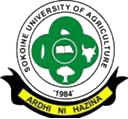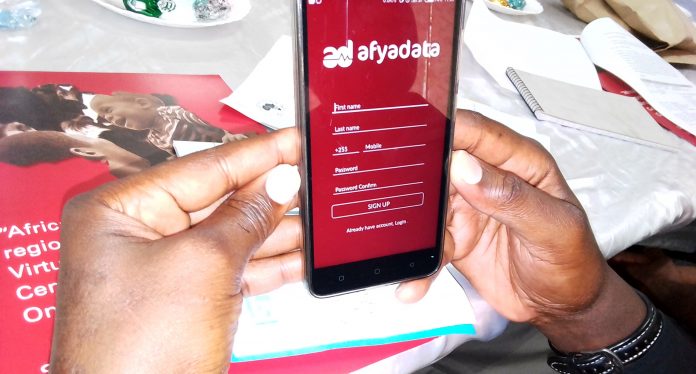A digital tool, known as AfyaData, which was developed by researchers at Sokoine University of Agriculture (SUA) in Tanzania can enable people in communities report patients suspected of contracting infectious diseases such as Ebola, Rift Valley Fever, Marburg and cholera.
The App is available for free download on Google Play store. Over 470 community members and disease surveillance authorities are already using it in five districts of the country: Ngorongoro, Kilosa, Malinyi, Ulanga and Kibaha.
The digital platform is a set of open source mobile and web digital tools developed by researchers at the SUA-based Southern African Centre for Infectious Diseases Surveillance (SACIDS).
AfyaData was developed to facilitate the timely detection of disease outbreaks at the community level and it’s now at phase II of its implementation, according to researchers at SACIDS.
Professor Esron Karimuribo, a Principal Investigator at the Disease Outbreak Detection and Response East and Southern Africa (DODRES) project, said the App is now being used to engage communities in reporting health events because the quicker an outbreak may be detected, the better are the chances to contain the threat.

The Democratic Republic of Congo (DRC), in which an Ebola outbreak has so far claimed 27 people, is seeking to engage the Tanzanian experts who developed the App, revealed Prof Karimuribo. Yet, Uganda, Kenya and Thailand have also expressed their intention to import the digital technology from Tanzania.
The idea to develop this mobile technology app stemmed from an EpiHack sponsored by a US organization, Ending Pandemics that brought together 66 experts in human and animal health as well as information communication technologies from 10 countries of Africa, Asia, North and South America.
AfyaData has been deployed to support participatory community-based surveillance in Tanzania since 2015 and it leverages this by empowering community members with an ergonomic, low power and low cost tools that they may use to report health data in near to real time.
People in communities—named as health reporters—use the App by collecting data on signs and symptoms via their mobile phones and send the info over the internet to a server where they are stored, synthesized, analyzed and intelligently translated by medical experts into a diagnosis.
This information can be used to provide feedback to the authorities who can now take action in combating potential threats.
It provides details of location via GPS and can also provide the data on the extent of the problem, depending on the amount of details that people in communities can feed into the app.

SUA’s Vice Chancellor, Prof Raphael Tihelwa Chibunda said the App is part of the university’s contribution to Tanzania’s preparedness against life-threatening epidemics such as Rift Valley Fever (RVF), Ebola and other diseases that can spread from animals to humans—Zoonoses.

Ending Pandemics provided at USD 450,000 funding to SUA researchers to implement the App project and the technology was developed by a team of animal, human and ICT specialists.
SACIDS Executive Director Prof Mark Rweyemamu said Tanzania can now mobilize communities to detect various infectious diseases because it has a well-established leadership structure that goes up to grass-root level.
SOURCE: Medicopress







